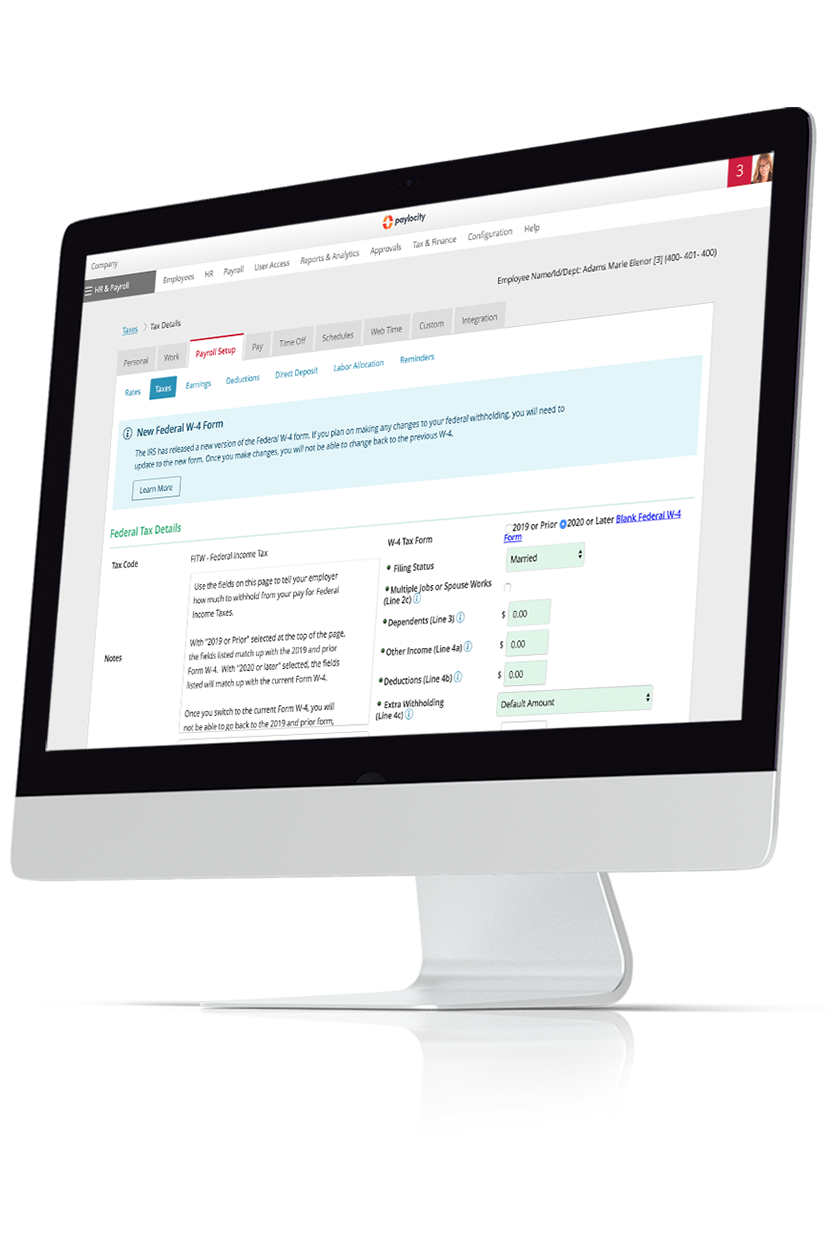Illinois Payroll Tax Facts
July 01, 2025
Having to comply with unique state taxes and wage laws can make processing payroll doubly daunting. Here’s everything you need to know about these rates and laws for the state of Illinois.

In addition to the state minimum wage rate being higher than the federally mandated rate, Cook County and the city of Chicago also use a different rate for employees in those areas. These two areas also have their own Paid Sick Leave programs guaranteeing time off for local employees.
When it comes to processing payroll, Illinois-based organizations must handle the following taxes in addition to those required by the federal government:
- Personal Income (a.k.a. State Income Tax)
- State Unemployment Insurance (SUI)
The below information was last updated July 1, 2025. It is not intended as legal or tax advice.
Illinois Payroll Tax Rates
Illinois State Income Tax (SIT)
Illinois has a flat income tax rate of 4.95%, meaning all residents pay the same amount regardless of their income levels. Illinois also requires nonresidents who work in Illinois to pay state income tax unless they live in a reciprocating state (see below).
|
Additional Illinois SIT Details |
|
|
Valid Filing Statuses |
N/A |
|
Exemptions |
|
|
Form W-4 |
Form IL-W-4 |
|
Reconciliation Frequency |
Annually |
Illinois State Unemployment Insurance (SUI)
SUI provides unemployment benefits to eligible workers who are unemployed through no fault of their own (as determined by state law) and meet the state’s eligibility requirements.
|
Illinois SUI Tax Details |
|
|
Taxable Wage Base |
$13,916 |
|
Employee Subject to Tax |
No |
|
Rates for Experienced Employers* |
0.75% – 7.85% |
|
Rates for New Employers* |
3.65% |
|
Effective Period |
Calendar Year |
|
Voluntary Contributions Allowed |
No |
*This includes a 0.55% Fund-Building surtax.
Illinois State Disability Insurance (SDI)
SDI benefits are normally funded by employees through mandatory payroll deductions from each paycheck. Illinois, however, doesn't require employers to collect an SDI tax.
Illinois Paid Sick Leave (PSL) Tax
The state of Illinois doesn’t require employers to collect PSL taxes, but it does have a program providing such leave to eligible employees:
|
Illinois PSL Details |
|
|
Covered Employees |
All full-time and part-time employees |
|
Covered Employers |
All; including state and local government employers |
|
Accrual Method(s) |
One hour per 40 hours worked |
|
Annual Accrual Maximum |
40 hours |
|
Carryover Allowed |
Yes, but employers aren’t required to offer more than 40 hours of leave in a single year |
|
Frontloading Allowed |
Yes |
|
Probationary Period |
90 days |
|
FAQs |
|
Note: This program doesn't preempt the local paid leave programs for Chicago or Cook County.
Illinois Paid Family and Medical Leave (PFML) Tax
The state of Illinois doesn’t require employers to collect PFML taxes, nor does the state have a program providing such leave to employees.
Miscellaneous Illinois Tax Information
Illinois Reciprocal Agreement(s)
Reciprocal agreements are when workers who live and work in different states are only required to pay taxes to the state where they live. Illinois currently has reciprocal agreements with the following states:
- Iowa
- Kentucky
- Michigan
- Wisconsin
Residents of those states who work in Illinois aren't subject to Illinois SIT but must file a Form IL-1040.
Illinois Minimum Wage Rates
|
Wage Type |
Illinois Rates |
Federal Rates |
|
Minimum Wage |
$15.00 |
$7.25 |
|
Tipped Minimum Wage |
$9.00 |
$2.13 |
|
Actual Tip Credit |
$6.00 |
$5.12 |
In addition to the state-wide minimum wage rates above, some cities and counties have unique minimum wage rates as well:
|
Wage Type |
Chicago Rates* |
Cook County Rates |
|
Minimum Wage |
$16.60 |
$15.00 |
|
Tipped Minimum Wage |
$12.62 |
$9.00 |
|
Actual Tip Credit |
$3.98 |
$6.00 |
*For employers with four or more employees.
Paying Payroll Taxes in Illinois
Illinois Employer Registration
The agencies below can help with your state-based employer registration, including best practices, account numbers, and unemployment information. Contact the Department of Revenue for withholding tax topics and the Department of Employment Security for unemployment tax topics.
|
Registration Details |
Department of Revenue |
Department of Employment Security |
|
Phone |
(217)-785-3707 |
(800) 247-4984 |
|
Online Registration |
MyTaxIllinois Login Page | |
|
Registration Instructions |
Employers can register online or by phone. If registering online, your account number will be issued during registration. The same account number will be issued for Withholding and Unemployment. |
|
|
Employer Self-Service Login |
||
Additional Illinois Payroll Tax Resources
- Illinois Department of Revenue Business Information Page
- Illinois Department of Labor Homepage
- City of Chicago Tax Page
- Cook County Tax Center
This information is provided as a courtesy and may be updated at any time. It is not intended as legal or tax guidance. If you have questions or concerns, we encourage you to seek the advice of a qualified CPA, tax attorney, or advisor.

Get Taxes Done Right, Without the Stress
We know there's a lot that goes into preparing and filing payroll tax forms. Save time and get support from our expert team. As a Registered Reporting Agent with the IRS, we can help prepare and file all the necessary forms you need to remain compliant - even in the face of changing legislation. Learn more here.